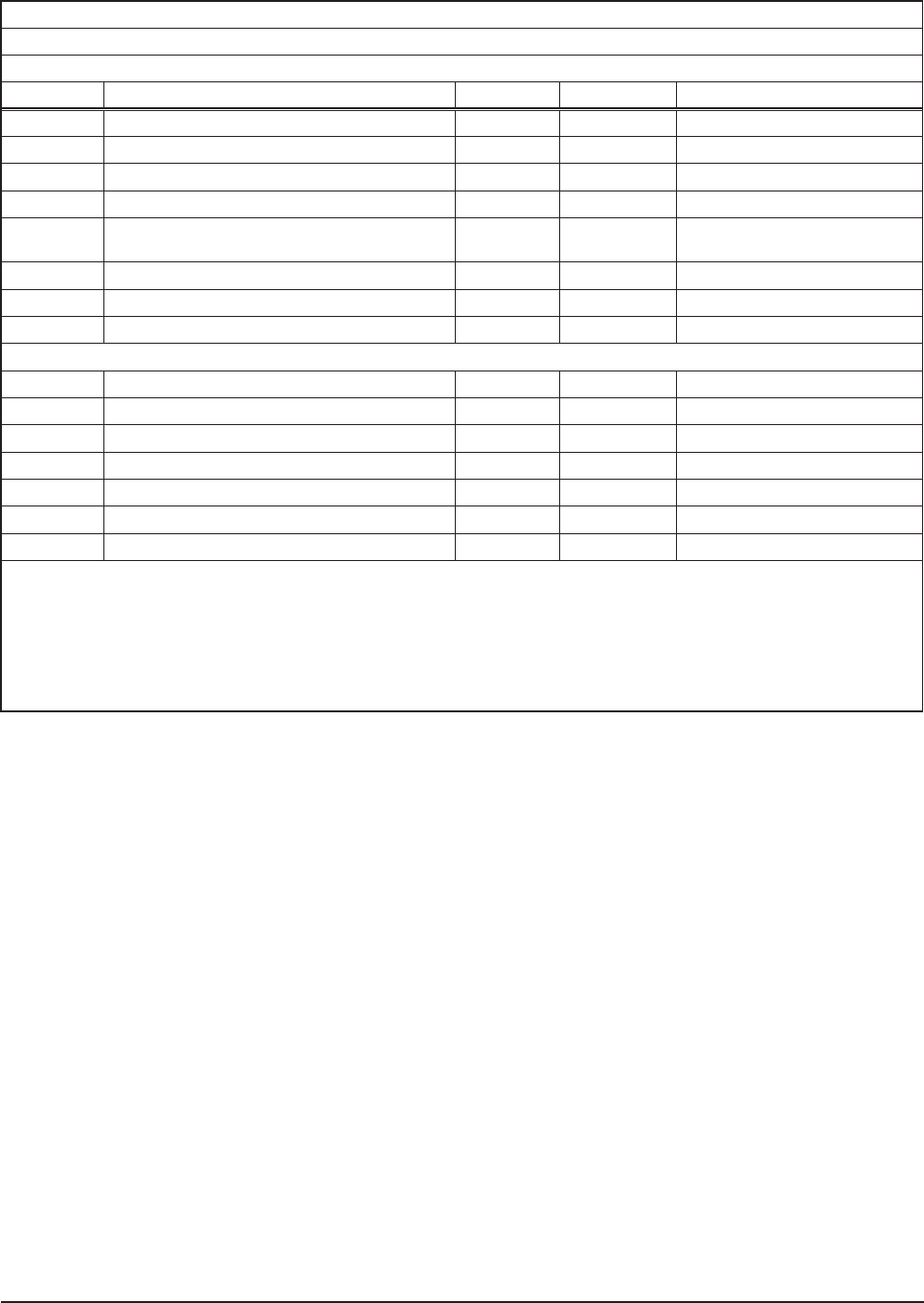
16
MN002000A © 2004 Navman NZ Ltd. All rights reserved. Proprietary information and specifications subject to change without notice.
Message ID: 1002
Rate: Variable; defaults to 1 Hz
Message Length: 51 words
Word No. Name Type Units Range
1-4 Message header
5 Header checksum
6-7 Set time (Note 1) UDI 10 ms ticks 0 to 4 294 967 295
8 Sequence number (Note 2) I 0 to 32 767
9
Satellite measurement sequence number
(Note 3)
I 0 to 32 767
10 GPS week number UI weeks 0 to 32 767
11-12 GPS seconds into week UDI s 0 to 604 799
13-14 GPS nanoseconds from epoch UDI ns 0 to 999 999 999
Channel summary data
15.0+(3*n) Measurement used (Note 4) Bit 1 = used
15.1+(3*n) Ephemeris available Bit 1 = available
15.2+(3*n) Measurement valid Bit 1 = valid
15.3+(3*n) DGPS corrections available Bit 1 = available
16+(3*n) Satellite PRN UI 0 to 32
17+(3*n) C/No UI dBHz 0 to 60
51 Data checksum
Note 1: Set time is an internal 10 millisecond (T10) count since power-on initialisation enabled the processor interrupts. It is not used
to derive GPS time, but only serves to provide a sequence of events knowledge. The set time or T10 count references the receiver’s
internal time at which the message was created for output. The T10 range is approximately 71 weeks.
Note 2: The sequence number is a count that indicates whether the data in a particular binary message has been updated or
changed since the last message output.
Note 3: The satellite measurement sequence number relates the position solution data to a particular set of satellite measurements
found in binary Messages 1002 and 1007 (channel summary message and channel measurement message, respectively).
Note 4: n = 0 to 11.
Table 3-6 Message 1002 (channel summary)
3.5.1.2 Message 1002 (channel summary)
This message provides a summary form of the
satellite range measurements and signal tracking
information on a per- channel basis. The contents
of the ‘channel summary’ message are described
in Table 3-6


















